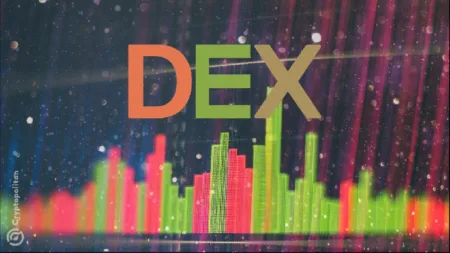The decentralized derivatives protocol unveiled a high-yield structured product called Gold Rush last week.
The basket options strategy involves Tether’s gold-backed token, XAUT, and ether as underlying assets and a safety component that protects users from a 30% drop in the tokens’ prices.
Decentralized finance (DeFi) projects are continuing to develop structured products, which offer decent returns, market exposure and protection from losses and were previously available only to institutional investors in traditional markets.
Last week, derivatives protocol Cega unveiled Gold Rush, a basket options strategy involving the Ethereum blockchain’s ether (ETH) token and Tether’s gold-backed {{XAUT}} as underlying assets alongside a safety component that protects users’ capital from a 30% drop in the assets’ prices.
The product offers an annualized percentage yield of up to 83% to investors who stake ETH, Lido’s staked ether (stETH), wrapped bitcoin (wBTC), or stablecoin USDC in the option strategy vault, Cega said. The yield is paid out in the form of the coins staked, so, ETH stakers receive ETH in yield, providing an asymmetric upside in a bullish market.
The Gold Rush vault went live on March 26. Since then, users have deposited crypto assets worth $297,000 in the strategy.
“Users in DeFi want to stake native assets like ETH or liquid staking tokens like stETH, but don’t want to lose the asymmetric upside on those assets. Users also want safer, higher-yielding opportunities without significant risk to their principal. The new offering, Gold Rush, achieves both of these goals,” Cega told CoinDesk.
Knock-in safety feature
Gold Rush sells 27-day put options with XAUT and ETH as underlying assets. The premium received from market makers who purchase these options is distributed as yield to vault participants.
Options are derivative contracts that give the purchaser the right to buy or sell the underlying asset at a predetermined price at a later date. A call gives the right to buy and a put gives the right to sell. A basket option gives the option holder the right to buy or sell the basket of underlying assets, in Cega’s case, ETH and XAUT, at a preset price at a later date.
The option has a safety mechanism that protects stakers’ capital against a 30% price drop in XAUT or ETH and has a maturity of 27 days. In other words, the product is suitable for those who do not expect the tokens to drop by more than that over the period.
If neither of the assets drop that much, users receive the principal in full, along with the yield, which is accrued daily. On the flip side, if either does breach the 30% downside barrier, the principal returned on expiry is adjusted for the loss from the worst-performing asset. The user still retains the yield.
“Users receive downside protection on their deposits against significant market declines, up to 30%. This safety element is an attractive aspect of the fixed coupon note strategy (FCN) owing to a technical feature called a barrier option,” Cega said in a note to CoinDesk.
According to Cega, even in the worst-case scenario, users earn more than they would from holding long XAUT/USD or ETH/USD positions.
“This is because losses are offset by the high daily yield, which is paid regardless of market conditions – and this safety feature also makes FCNs [fixed coupon notes/structured products] attractive for investors,” Cega said in an explainer.
Cega’s backtesting of the strategy over the past three years showed less than a 3% chance of XAUT or ETH falling by over 30% in 27 days.
That said, depositors stand to lose the yield if the market makers who purchased options default. And, as with other DeFi protocols, moving funds on-chain carries a smart contract risk.
Read the full article here









